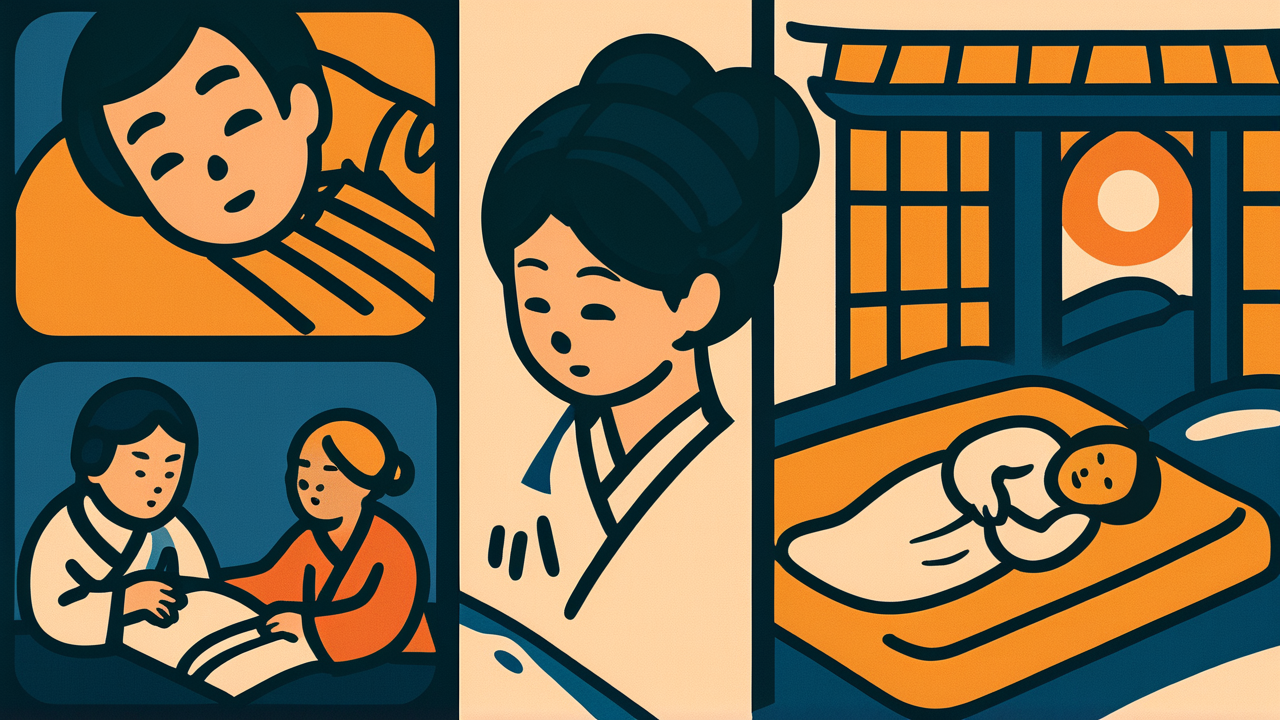How to Read “京の夢大阪の夢”
kyō no yume ōsaka no yume
Meaning of “京の夢大阪の夢”
“Kyoto’s dream Osaka’s dream” is a proverb that expresses how both dreams are equally fleeting and unlikely to be realized.
The word “dream” in this proverb is not used in the modern sense of “hopes or goals,” but rather in its original classical meaning of “unrealistic fantasy” or “impossible desire.” In other words, it shows that dreams held in Kyoto and dreams held in Osaka are ultimately nothing more than unrealistic, unattainable dreams.
This proverb expresses the human psychology that changing location does not solve fundamental problems. It points out the reality that even when people feel dissatisfied with their current location and yearn for another place with a “the grass is greener on the other side” mentality, they will actually end up with similar results wherever they go. Even today, it is sometimes used to express the mindset of people who repeatedly change jobs or move while pursuing their ideals.
Origin and Etymology
“Kyoto’s dream Osaka’s dream” is a proverb that has been used since the Edo period, but there are multiple theories about its origin.
The most widely accepted theory is that it originated from an expression contrasting the characteristics of Kyoto and Osaka, the two major cities of the Kansai region. Since ancient times, Kyoto has been known as an elegant capital, while Osaka has been known as a city that prospered through commerce. Although these two cities are geographically close, they each had different cultures and values.
Another theory suggests that it was an expression born from travelers going back and forth between Kyoto and Osaka. During the Edo period, many merchants and craftsmen traveled between both cities, harboring different dreams and hopes in each place. In Kyoto, they may have held cultural aspirations, while in Osaka, they may have wished for business prosperity.
The background to this proverb’s establishment is thought to lie in the special meaning that people of that time invested in the word “dream.” Unlike the modern meaning of “future hope,” the classical word “dream” carried strong connotations of “something fleeting” and “something not real.” This evolution of the word’s meaning is the key to understanding the true meaning of this proverb.
Usage Examples
- Watching him repeatedly change jobs makes me think it’s just Kyoto’s dream Osaka’s dream
- I’m wavering between this company and that company, but it might just be Kyoto’s dream Osaka’s dream after all
Modern Interpretation
In modern society, the meaning of this proverb has undergone significant changes. With the development of social media and information technology, we can now instantly obtain information about any place in the world. As a result, the “grass is greener on the other side” phenomenon has become more pronounced, and more people are constantly moving in search of better environments and opportunities.
Particularly among younger generations, barriers to job changes and relocation have lowered, and behavioral patterns resembling “Kyoto’s dream Osaka’s dream” have become common. With the spread of remote work reducing physical location constraints, many people are considering various options in pursuit of ideal work styles and lifestyles.
However, in modern times, not only the negative aspects of this proverb have emerged, but also positive interpretations. This is because in a globalized society, the possibility of actually seizing new opportunities by changing locations has increased. What was once considered “fleeting dreams” can now often become achievable goals.
On the other hand, the fundamental problem that this proverb warns against remains valid today. The lesson that if you focus only on changing external circumstances while neglecting your own inner growth and problem-solving, you will ultimately hit the same walls wherever you go, remains an important insight for modern people.
When AI Hears This
This proverb conceals the ingenious psychological strategy of Kansai people. On the surface, it means “dreams anywhere are just dreams in the end,” but why “dreams of Kyoto and Osaka” rather than “dreams of Edo”? Here lies Kansai’s deep calculation.
During the Edo period, while the political center was in Edo, cultural authority still remained in Kamigata (Kansai). Kyoto took pride in its prestige as the thousand-year capital, and Osaka dominated the economy as “the nation’s kitchen.” In other words, Kansai had two brilliant options that differed from Edo.
This proverb weaponizes that “abundance of choices.” For example, even today, there’s a completely different impression between a Tokyo person saying “it’s just a dream anyway” and a Kansai person saying “whether it’s Kyoto or Osaka, both dreams are the same.” The latter conveys a sense of confidence that “we have several wonderful cities.”
What’s even more intriguing is how it completely ignores Edo. By excluding Edo, the largest city of the time, from the options, it expresses Kansai’s pride of “Edo isn’t even on our radar.” This can be called a form of cultural resistance. While Kansai people outwardly wore a mask of resignation, they were actually subtly asserting their sense of superiority over Edo.
Lessons for Today
What “Kyoto’s dream Osaka’s dream” teaches us today is the importance of a way of life that doesn’t rely solely on external changes. Seeking new environments and opportunities is never a bad thing, but at the same time, we must not forget to face our own inner selves.
In modern society, it may feel like we have infinite choices, but that’s precisely why the ability to find fulfillment in the “here and now” becomes important. Before considering job changes or relocation, first think about what you can do in your current environment. Such an attitude is the first step toward becoming someone who can find happiness anywhere.
This proverb is not telling us to give up on our dreams. Rather, it teaches the importance of cultivating the ability to distinguish between truly valuable dreams and those that are not. By not being misled by superficial longings and listening to the voice of your heart, your life should become richer and more fulfilling.



Comments